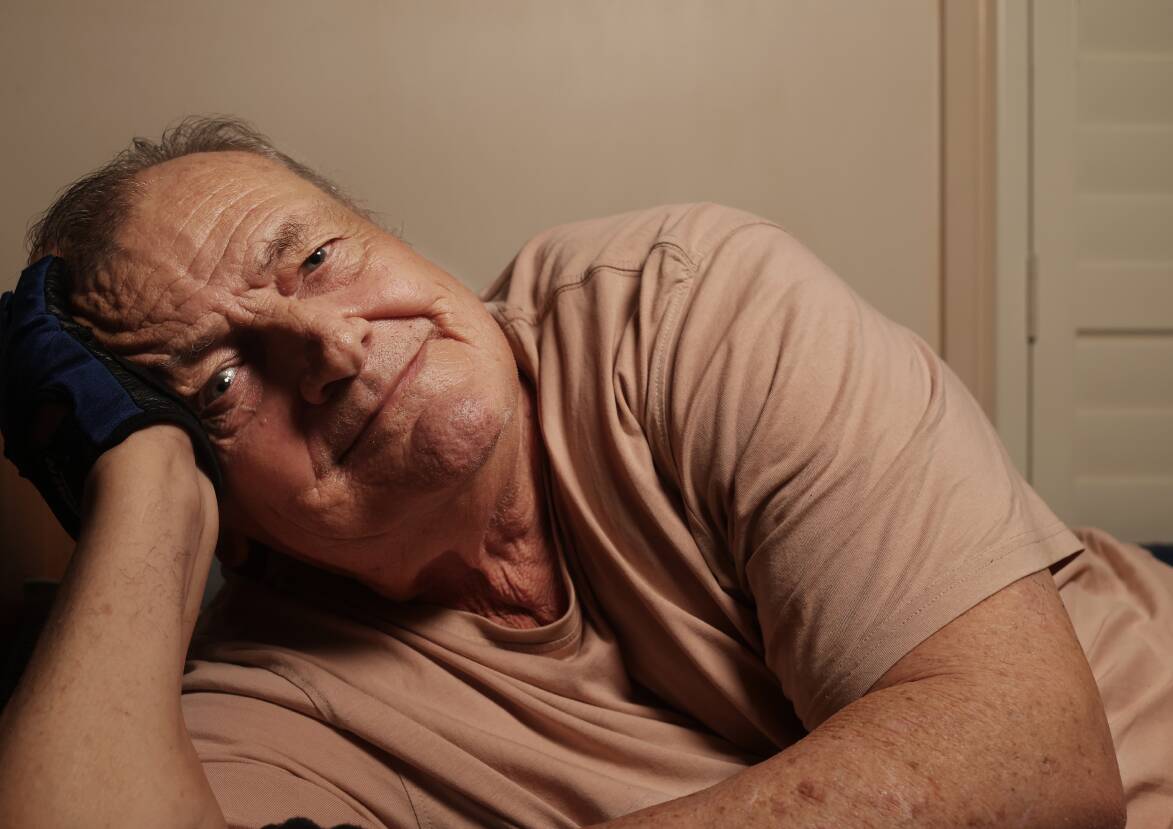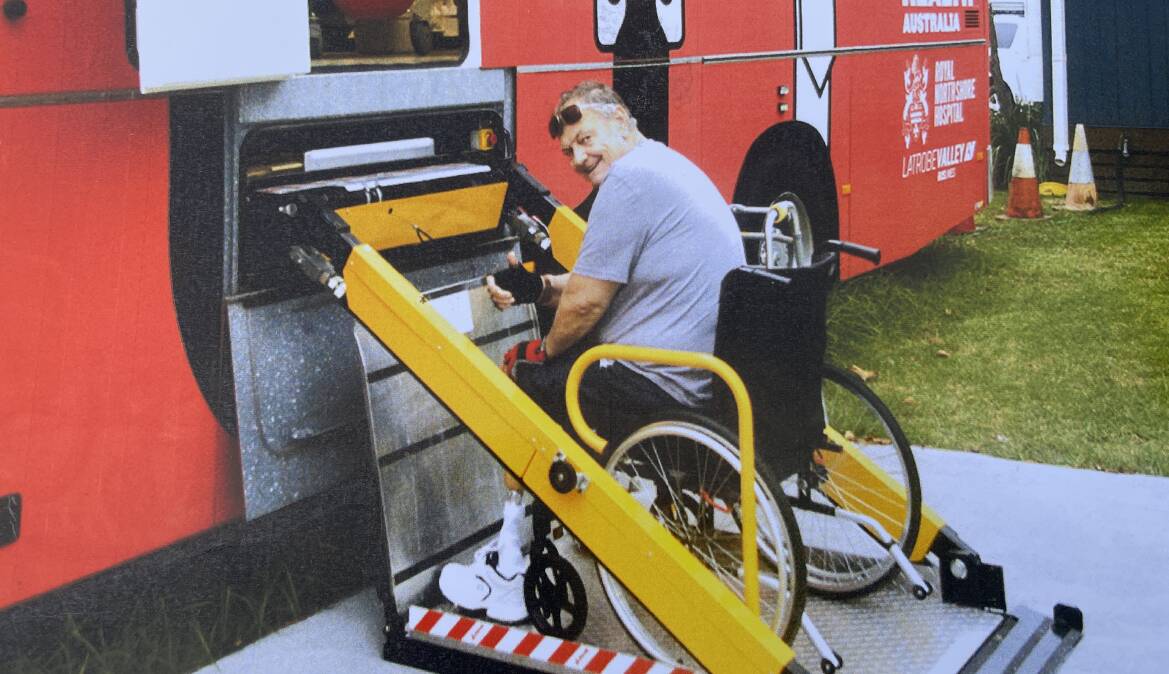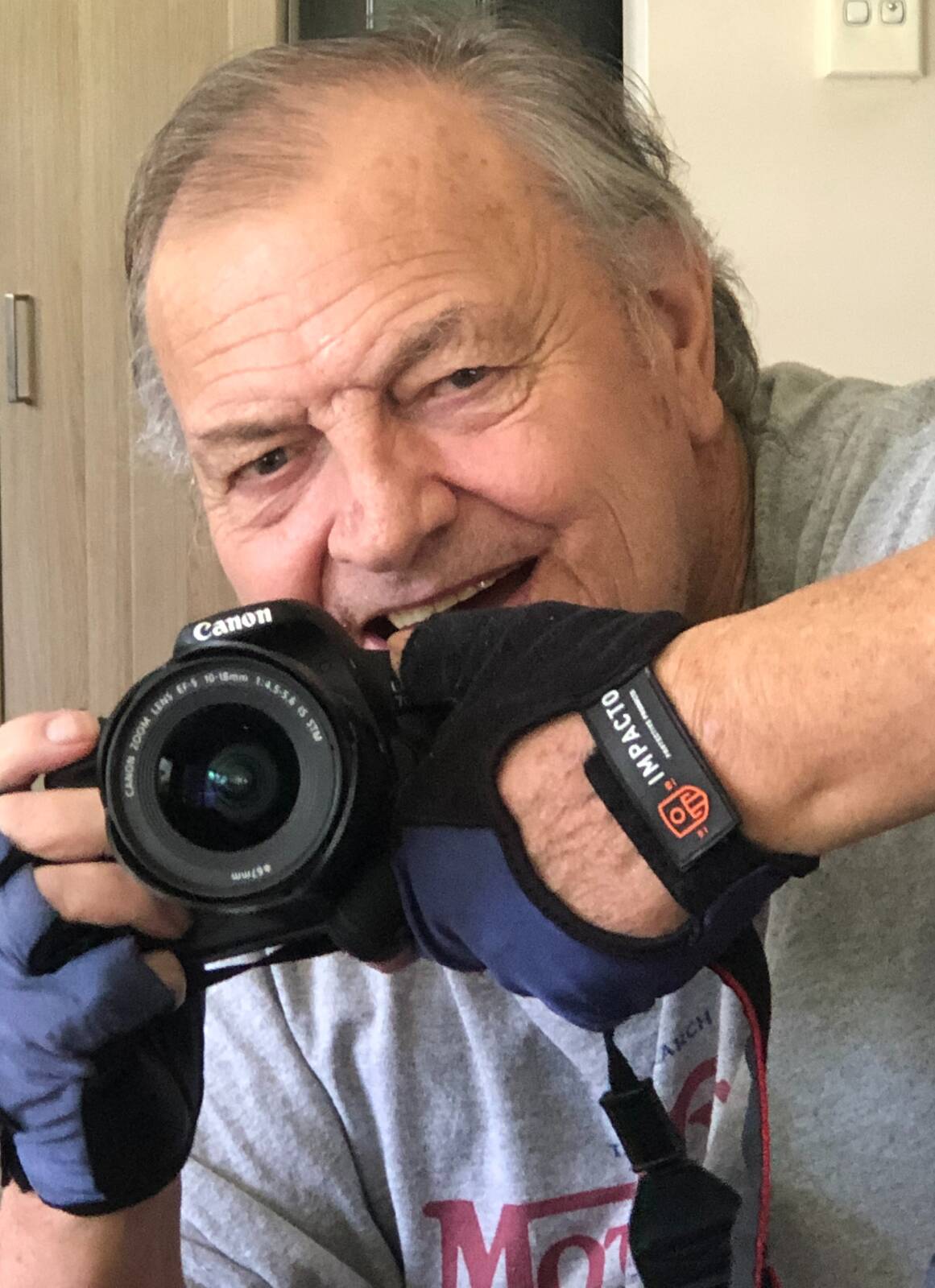






John Rook's disability is hard to live with, but writing a novel and the love of his wife has helped him through it.
"I'm 73 and my body is a mess," Mr Rook said.
"I have no feet, my lower legs have been amputated and I spend most of my day in a wheelchair.
"It's a hard thing to come to grips with to know your body is failing."
Mr Rook shared his story to mark World Kidney Day on Thursday.
Three in four Australians are at risk of kidney disease, with the highest contributing factors being diabetes and high blood pressure.
Mr Rook was diagnosed with kidney disease in 1980, two years after learning he had type 1 diabetes.
His diabetes contributed to kidney failure in 2005.
"I've had diabetes for about 40 years and it has almost worn me out," he said.
"But despite the gloom, you can get to grips with the disease. It's all about education, there are plenty of services available."
Mr Rook, of Buff Point on the Central Coast, relies on dialysis three times a week to rid his body of excess fluids and toxins.
"The restrictions dialysis places on my lifestyle is mind-boggling," he said.
However he was "determined to do something positive" to balance the ordeal of 15 hours a week on dialysis.
The former photographer and journalist had a novel published in 2022.
His book, titled A Senseless Death in a Dying Republic, was set in the time before Julius Caesar.
Mr Rook, who served nine years in the Navy and spent 24 years as a TAFE teacher, spends a lot of time reading ancient history.
"It takes my mind away from the worry of my disability," he said.
"And when I write, it makes the time go quicker and keeps me focused on something positive.
"When I accomplish something it makes me feel better."
He said diabetes and kidney disease "can give you low self esteem".
He began dialysis in 2006 and had a successful transplant two years later, after his sister donated a kidney.
"Unfortunately my transplanted kidney only lasted nine years," he said.
"The kidney was removed after it started removing blood flow from my lower limbs and depositing it in my bladder.
"Consequently my feet and lower limbs lost circulation."
They were amputated in 2017/18 and he went back on dialysis.
He said life as an amputee was "a hell of a setback".
"In the beginning, I was determined to walk wearing my prosthetics and using a walker," he said.
"I even started swimming lessons. After several weeks I ended up with two nasty ulcers on my stumps.
"I was confined to the wheelchair while my legs healed."
He could no longer swim because of open wounds.
"It took months for my legs to heal and during this period a new set of problems arose, owing to the wheelchair confinement."
Despite the challenges he had faced, he said "I must mention my supportive and caring wife, Marilyn".
"I doubt I would have gotten this far without her. I love her. She's really strong."
The World Kidney Day campaign highlighted that "prevention of chronic kidney disease requires targeted health policies that integrate kidney care into health programs".
It called for "equitable access" to kidney disease screening, tools for early diagnosis and "sustainable access to quality treatment" worldwide.
A campaign document, titled Kidney Health For All, said "across the globe, chronic kidney disease affects around 700 million people".
Kidney dysfunction causes about 3.1 million deaths a year globally, making it the seventh leading cause of mortality.







